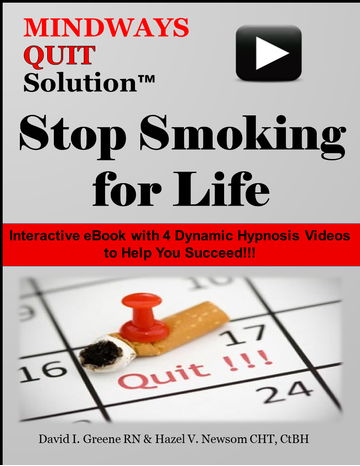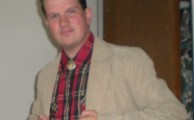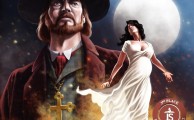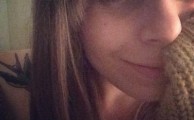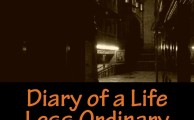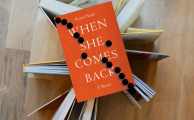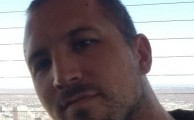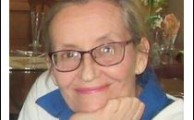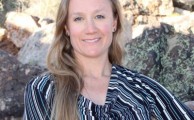David Greene Interview
Tell us a little about yourself and your work
I’m David Greene, one of the Co-Founders of the MINDWAYS QUIT Solution™ Stop Smoking Interactive eBook. I’ve always had a passion for caring for the needs of others, and went into the medical field to fulfil that need. I’ve had a 23-year medical career that has allowed me to help a lot of amazing people in many different places and in various roles. I’ve functioned as an infantry medic with the United States Marine Corps, sold women’s health products for a large pharmaceutical company, worked as a registered nurse in the emergency room and with hospice patients, and led clinicians at large healthcare organizations for the past ten years trying to help with lifestyle choices.
The MINDWAYS QUIT Solution™ is the joint venture between myself and my business partner Hazel Newsom. She is a nationally recognized hypnotherapist originally from the UK. We have both experienced personal loss related to smoking, and that was our motivation for creating a program that provides people a chance to use our unique interactive multimedia approach. The eBook uses our own QUIT methodology (Quantify the impact, Understand your story, Initiate new coping, and Transform your life) to help people break their dependence on smoking.
Where do you like to write?
I like to write in my personal office at home because I feel comfortable, and it gives me the chance to take a break and see the smiling face of my 3-year-old daughter.
Is there anything you must have in order to write? For example, silence, whiskey, and a close shave.
I think having some sleep, and feeling relaxed helps me with letting the ideas flow when I’m writing.
What books have influenced you most, both as a person and as an author?
When I was younger I read all of the Hemingway novels, and also enjoyed Graham Greene. I think it was the adventurous spirit within me, but also I like the storytelling style of both their writing.
What is the one thing that has helped you develop most as an author?
I’m definitely still developing, and hope to always feel that way. I think writing is much like anything else. You must do it to get better. I also believe that we have to fail or give ourselves the chance to fail to move forward in life. No one knows everything, and having humility and a willingness to learn can go a long ways.
What do you want to achieve most from your writing?
There are two things I want my writing to achieve. First, I want to inspire people to look in the mirror and remember they are unique and talented people. That is the positive self-help part of my writing where I want to pull on heart strings by using life stories to help support my conclusions about life.
Secondly, I want to provide people with information that is applicable and useful in their lives. I want to people to be confident to make the changes in their lives by delivering hard facts and research they know is accurate. I truly like bringing that whole brain together in my writing, both the left and right. Hopefully that doesn’t put me on some sort of mental health risk calculator.
Is there something specific you do to improve your writing?
I have some people in my life that have become a valuable sounding board or measuring stick for my writing. I find that it’s important to have them look at my writing to help me see if I’m communicating the message that was intended.
What is the ideal relationship between editor and author?
I think it’s important to have someone that understands your passion, and can link into that even when the editing process is in full effect. We all are human, and will make mistakes. I need an editor that knows me, and will challenge me to ensure that the passion I want to share comes through in a way that can impact lives.
If you had a direct line to someone who loves your writing, what would you say?
Thank you. I feel honoured, but also I would want to know what about my writing resonates with them personally, so I could improve or magnify that effect with others who may not have the same opinion.
If you had a direct line to someone who hates your writing, what would you say?
What’s your problem? No, just kidding. I might ask them what they don’t like, but you also have to be confident in what you produce. Our life journeys are going to be filled with naysayers especially if you’re trying to do something greater than yourself. Those of us in this group just have to keep moving forward and let those words just roll off our backs.
If you could give one piece of advice to an aspiring author, what would it be?
I’m not sure I’m qualified, but what I would say to anyone about life is to follow your passion. Get to know who you are and the talents you have to offer this world. Be confident in your ability to bring your uniqueness to people in a way that make their lives better for interacting with you. Be a giver in life, and always look for opportunities to help another person achieve their goals.
What does your writing future hold for you?
My hope is that people will buy our book so I can continue feeding my family, and have a roof over my head. I also want it to be the springboard to create more material. We will plan to stick with our format, but already have a handful of topics that we want to get out to readers.
My dream would be that my writing would be the conduit to create a life that gives me the flexibility to be with those I love on my own schedule, gives me the time I need to write material that will impact lives, and gives me the financial means to help more people by funding philanthropic causes.
How have you set about the task of creating enticing cover art?
I created the cover for our book and all the design elements in our book. That may be good or bad. I guess we’ll just have to see what people say. I do have a background in art, and love to be involved in the creative aspect of product development. Thankfully my co-founder is a sweet woman who allowed me to test the waters, and through me a floatation device when she saw me sinking.
How often do you read? What genre?
I read articles each and every day, and try to also crack a good book a few days a week. With technology I’ve migrated more to the electronic form out of necessity in meeting my life needs. I actually listen to books because I’m in traffic about 2.5 hours a day, and I figured why not make use of this time. Therefore, I tend to read/listen to inspirational, practical, and intriguing topics. I like to listen to stories about overcoming adversity, I like to read/listen to topics that will teach me how to create/learn to do new things (cooking/building/fishing/business), and finally I like to read or listen to spy novels and get lost in my fantasy of being the agent I never became.
Thanks for taking the time to answer our questions. Best of luck in the future.
For more on David and Hazel’s work…







